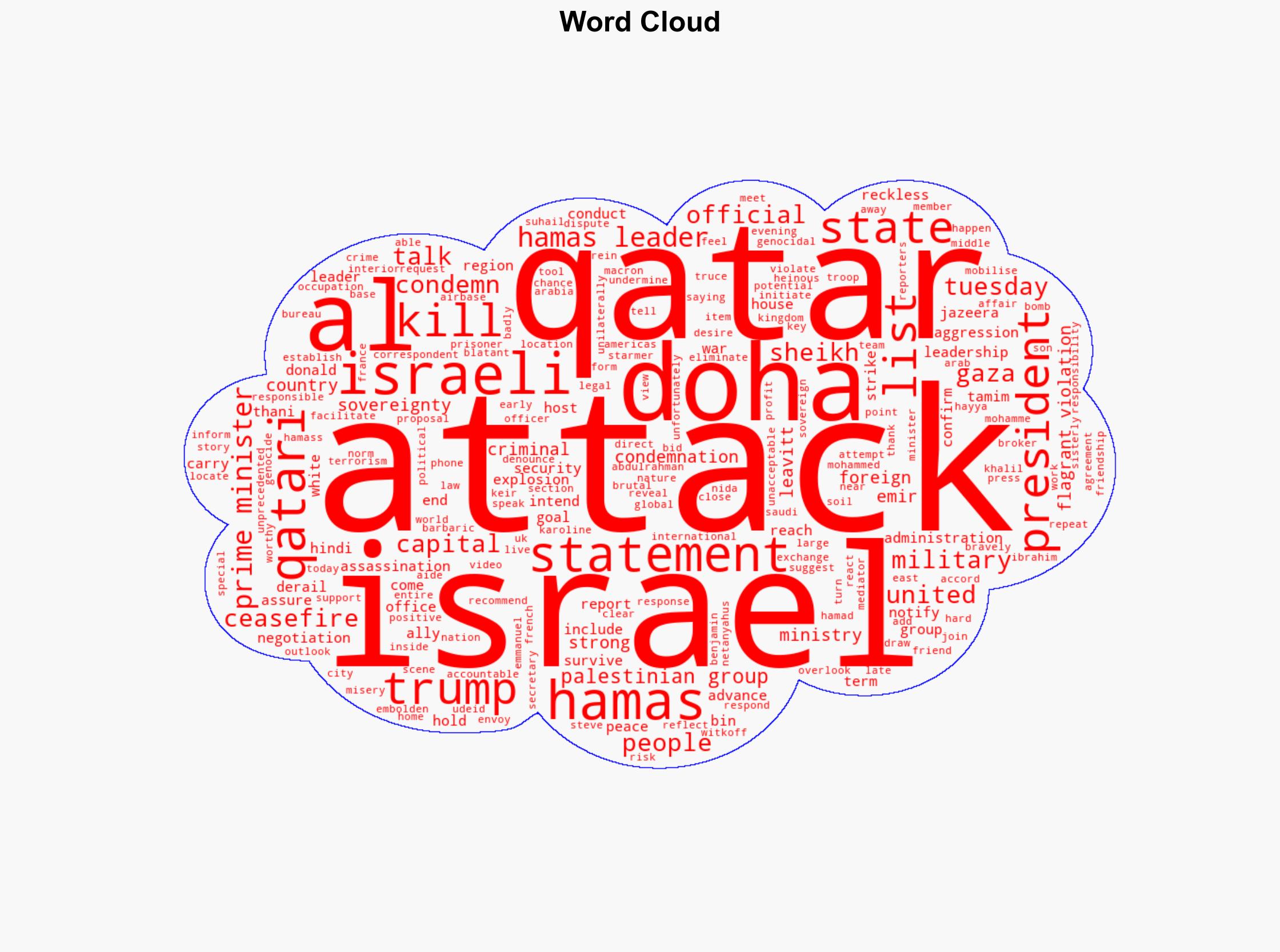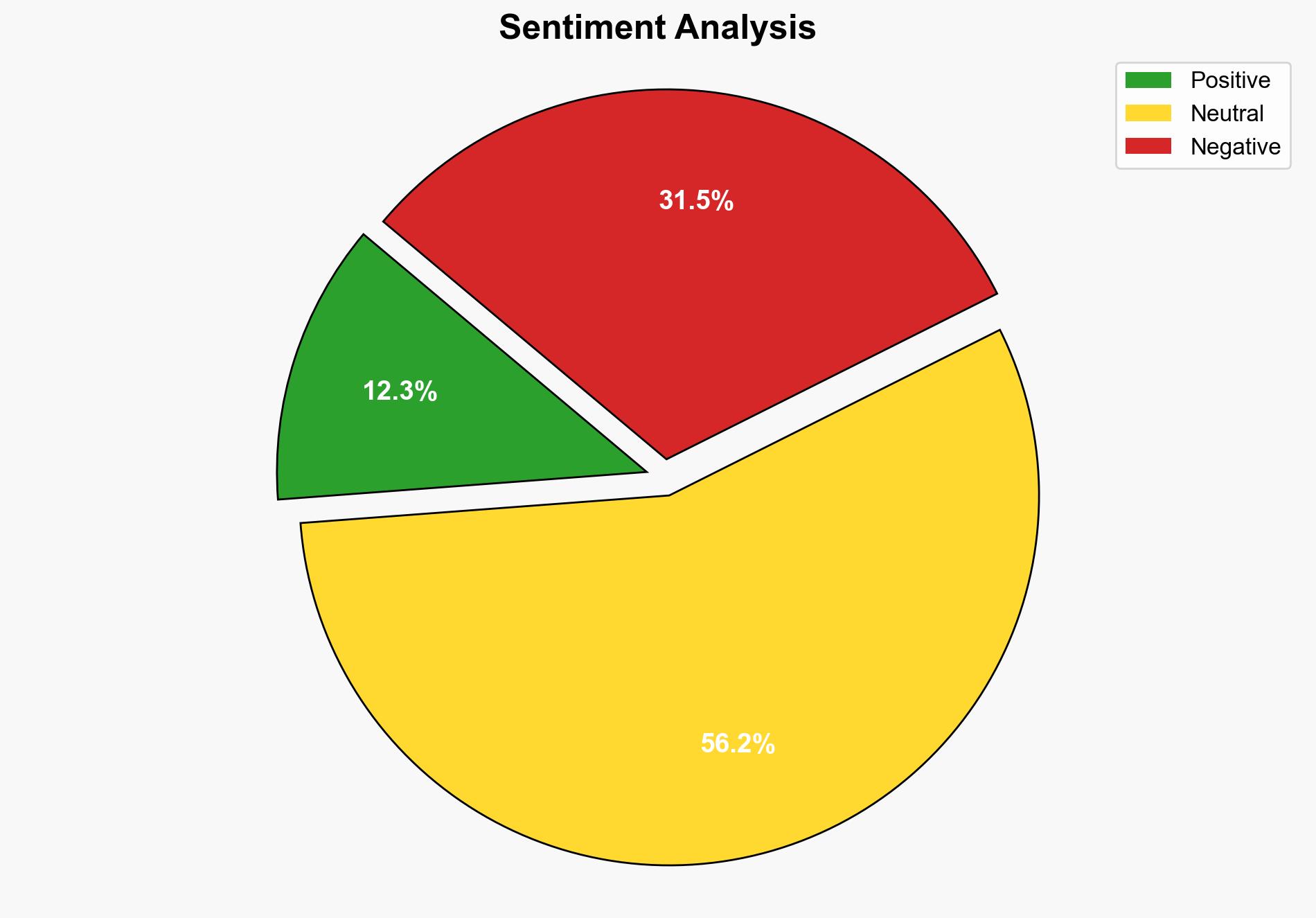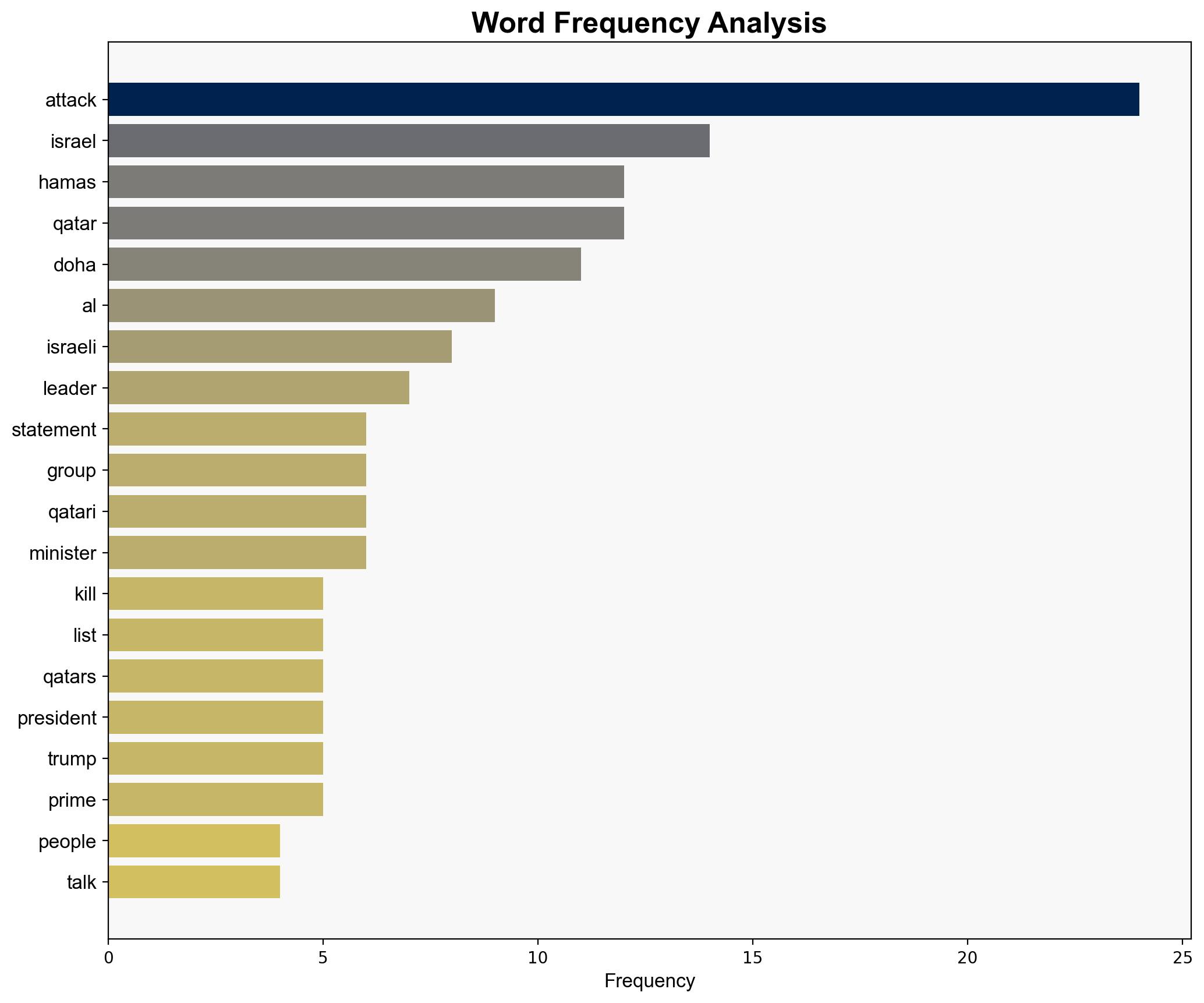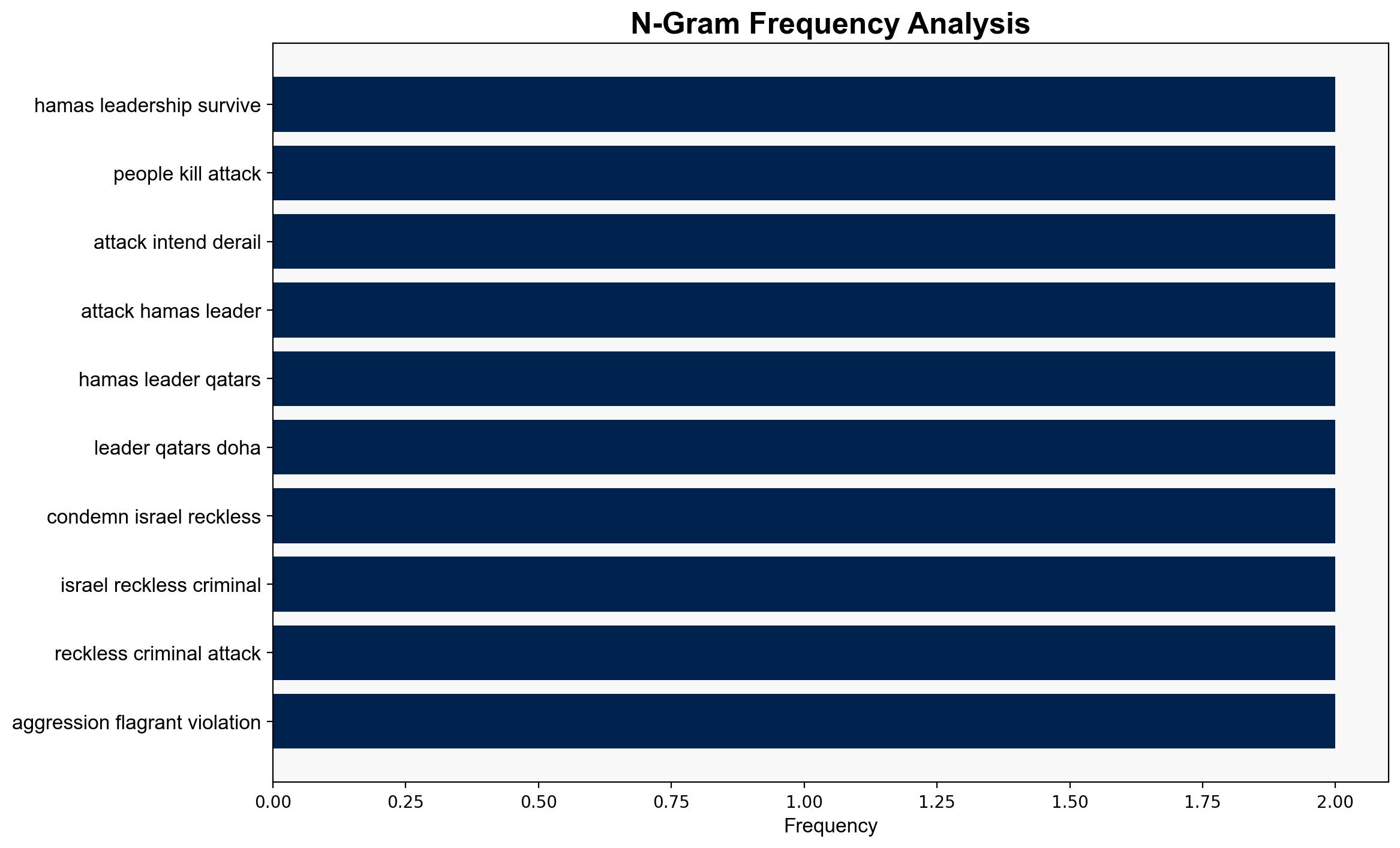Hamas leadership survived Israels assassination bid in Doha Official – Al Jazeera English
Published on: 2025-09-09
Intelligence Report: Hamas leadership survived Israels assassination bid in Doha Official – Al Jazeera English
1. BLUF (Bottom Line Up Front)
The most supported hypothesis is that Israel conducted the assassination attempt to disrupt Hamas’ leadership and derail ongoing truce negotiations. This hypothesis is supported by the official statements from both Hamas and the Qatari government, as well as the immediate international condemnation. Confidence level: Moderate. Recommended action includes diplomatic engagement to de-escalate tensions and ensure the continuation of peace talks.
2. Competing Hypotheses
1. **Hypothesis A**: Israel targeted Hamas leadership in Doha to disrupt truce talks and weaken Hamas’ operational capabilities. This is supported by the timing of the attack coinciding with ceasefire negotiations and the official acknowledgment by Israeli authorities.
2. **Hypothesis B**: The attack was a strategic move by Israel to pressure Hamas into concessions during negotiations, rather than an outright attempt to derail talks. This could be inferred from the calculated nature of the strike, aiming to demonstrate military reach and resolve without completely collapsing the negotiation framework.
3. Key Assumptions and Red Flags
– **Assumptions**: It is assumed that the attack was directly aimed at Hamas leadership and not a broader strategic maneuver. Another assumption is that the international condemnation will lead to increased diplomatic pressure on Israel.
– **Red Flags**: The lack of detailed casualty reports and the absence of independent verification of the events raise concerns about the accuracy of the initial reports. The quick attribution of responsibility to Israel without detailed evidence could indicate bias or misinformation.
4. Implications and Strategic Risks
The attack risks escalating regional tensions, potentially drawing in other Middle Eastern states and complicating U.S. diplomatic efforts in the region. There is also a risk of retaliatory actions by Hamas, which could destabilize the already fragile ceasefire negotiations. The geopolitical landscape could shift, affecting alliances and regional stability.
5. Recommendations and Outlook
- Engage in diplomatic dialogue with Qatar and other regional stakeholders to mediate tensions and reinforce the importance of peace talks.
- Monitor for retaliatory actions by Hamas and prepare contingency plans to address potential escalations.
- Scenario Projections:
- Best Case: Successful mediation leads to resumed negotiations and a stable ceasefire.
- Worst Case: Escalation leads to broader regional conflict involving multiple state actors.
- Most Likely: Continued diplomatic pressure results in temporary de-escalation, but underlying tensions persist.
6. Key Individuals and Entities
– Khalil al-Hayya
– Suhail al-Hindi
– Sheikh Tamim bin Hamad Al Thani
– Donald Trump
– Benjamin Netanyahu
– Keir Starmer
– Emmanuel Macron
– Sheikh Mohammed bin Abdulrahman Al Thani
7. Thematic Tags
national security threats, counter-terrorism, regional focus, diplomatic relations





